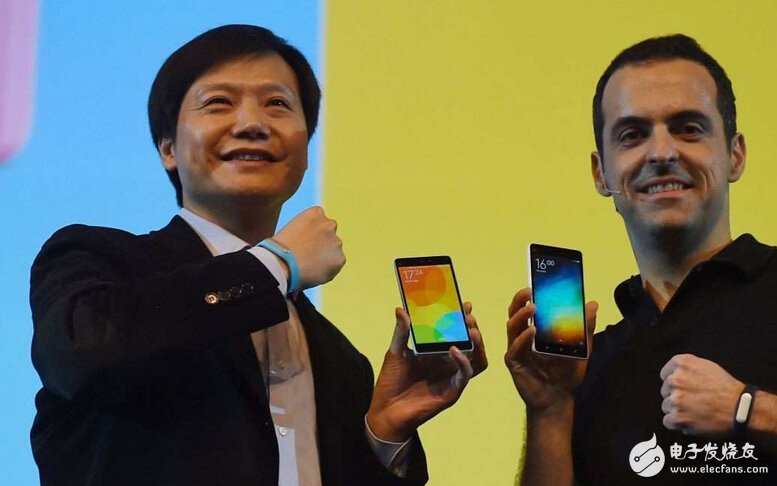"The higher the climb, the more it falls." China's hot smartphone mill may face such risks, at least in terms of valuation. At this time last year, billionaire Lei Jun raised $1.1 billion from five Asian investors, making the company's valuation reach $45 billion, causing widespread concern. Considering the current situation of Xiaomi, that is, just one year later, this figure looks too high.

Last year, Lei Jun predicted that Xiaomi’s sales in 2015 will reach 100 million units. Earlier this year, due to the slowdown in sales of Chinese smartphones and Xiaomi, he lowered the sales forecast for Xiaomi's mobile phones from 100 million units to 80 million units. Before the end of the year, the company's mobile phone sales may reach less than 80 million. According to market research firm Canalys, Xiaomi has achieved rapid growth in China, but it has declined for the first time. According to Bloomberg News, some of its supplies are expected to slow down due to the expected slowdown in shipments of Xiaomi mobile phones. Merchants began to reduce production scale.
“Unless Xiaomi is able to resume real growth or substantially increase its gross profit margin, the company simply cannot prove that its valuation of nearly $45 billion is reasonable,†said Richard Windsor, senior analyst at Edison Investment Research. Said, "I expect that Xiaomi's valuation will be significantly reduced."
Xiaomi sells mobile phones at a price close to the cost, and makes the advantages of the mobile phone as cheap as possible. It also pushes itself into a disadvantage. It faces more powerful competitors such as Samsung and Huawei. The latter two companies are Have more abundant internal cash flow. The meager profit margin means that Xiaomi is “almost unprofitable,†says Windsor, which means that when it needs more money, it will have to raise money from investors.
The current problem is that if Xiaomi plans to do so, then Xiaomi’s existing investors, including Facebook’s early investor DST Global, Singapore’s sovereign wealth fund Singapore Government Investment Corporation (GIC) and China’s Hong Kong’s Morningside Group, will not be allowed. It does not re-evaluate its valuation and may be able to write down the value of its current holdings.
This is the “down round†that is well known in Silicon Valley financing. Such financing will eventually dilute the shares held by existing investors and founders, or completely erase their value.
Recently, reports on the write-down of share value have been heard. For example, the US mutual funds Fidelity and Black Rock have written down the share value of their respective Dropbox, Snapchat and Benefits shares. Such write-downs have made tech companies embarrassed because, although they have not yet listed, their valuations have been made public by the regulatory filings filed with the Securities and Exchange Commission (SEC).
Whether Xiaomi's investors in Hong Kong and mainland China face the same regulatory pressure and remain transparent about their valuation is still unclear, but if Xiaomi has to start financing again, their position will become clear.
PTC Thermistor for Overcurrent Protection for Telecom
PTC Thermistor ,Thermistor,Thermistor for Overcurrent Protection ,PTC Thermistor YZPST
YANGZHOU POSITIONING TECH CO., LTD. , https://www.pst-thyristor.com